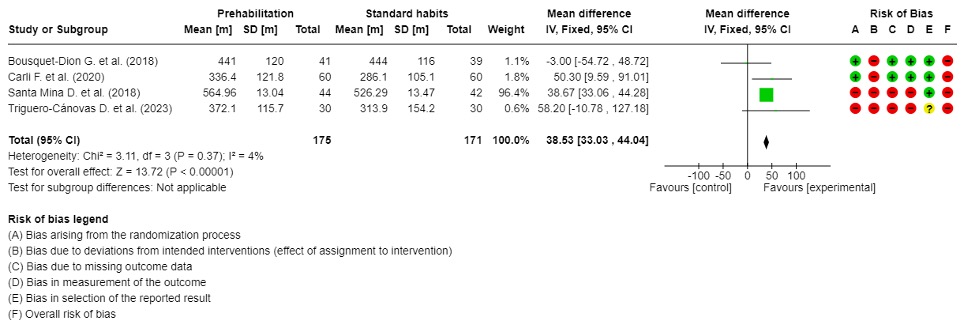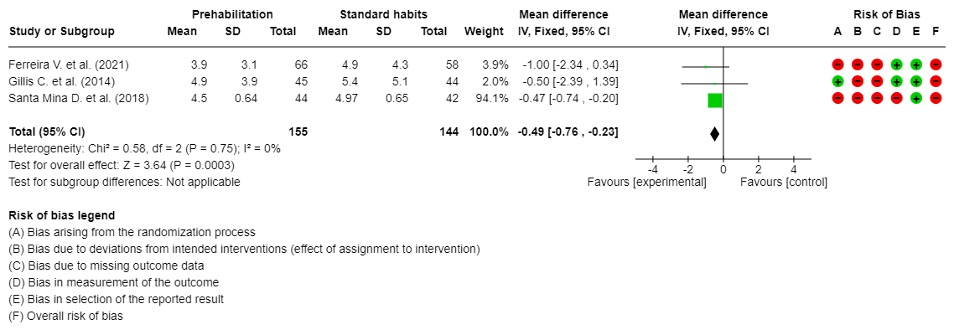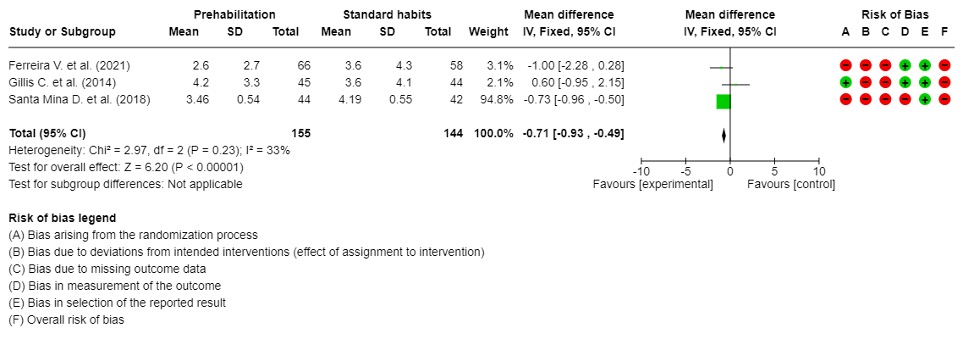Daniele Gennuso [Fisioterapista ASL Roma 3, UOC Riabilitazione e Centro Spinale, Centro Paraplegici Ostia, 00122 Roma, Italia]
Angela Baldelli [Fisioterapista, Fisiomedical s.r.l., 06100 Perugia, PG, Italia]
Loredana Gigli [Dirigente delle Professioni Sanitarie, ASL ROMA 3, 00122 Roma, Italia]
Ilaria Ruotolo [Dipartimento di Neuroscienze Umane, Università La Sapienza, Roma, Italia]
Giovanni Galeoto [Dipartimento di Neuroscienze Umane, Università La Sapienza, Roma, Italia; IRCCS Neuromed, Pozzilli, Italia]
Daniela Gaburri [Dipartimento di Medicina e Chirurgia, Corso di Laurea Magistrale in Scienze Riabilitative delle Professioni Sanitarie, Università di Perugia, Perugia, Italia]
Giovanni Sellitto [Dipartimento di Neuroscienze Umane, Università La Sapienza, Roma, Italia; MS Center, Ospedale Sant’ Andrea, Università La Sapienza, Roma, Italia]
Patients with cancer (PwC) who undergo specific treatments, such as surgery, chemotherapy or radiotherapy, report greater fatigue and reduced functional capacity as predominant outcomes, compromising their QoL during and following the treatment [1]. Prehabilitation intervention, provided after diagnosis and before treatments, is to optimize the physiological reserve and address modifiable risk factors before surgery or chemotherapy in order to improve post-treatment results [2].
The main purpose of this study is to integrate the results of empirical studies to provide an aggregate summary of the results, in order to obtain statistically precise and accurate conclusions on the effectiveness of this type of treatment. The secondary outcome is to assess methodological quality of the studies in order to support Pre-habilitation in the anti-tumor therapy guidelines, evaluating all the effects that it can produce in PwC.
This systematic review with meta-analysis was conducted from September to February 2024, in accordance with PRISMA guidelines.
The databases consulted were Medline, Scopus, Web of Science, and CINAHL. All available studies which included the keywords “prehabilitation” OR “prehab” OR “pre-operative rehabilitation” OR “peri-operative rehabilitation” AND “oncology patients” OR “cancer patients” OR “patients with cancer” OR “cancer” AND “randomized controlled trial” OR “randomized controlled trial” OR “rct” have been included. Eligibility criteria included randomized controlled trials related to Prehabilitation interventions on cancer patients. The methodological quality of the included studies was assessed through the RoB2 Cochrane tool and the PEDro scale. The meta-analysis was conducted on studies that reported comparable follow-ups for comparable outcomes (reported as mean and standard deviation) and at least two studies were combined where possible. Data analysis was carried out with RevMan Web, a software developed by the Cochrane Collaboration, a free statistical software.
The research on PubMed, CINHAL, Web of Science and Scopus databases, identified 584 articles; after removing duplicate items, 410 articles were found. 41 studies were included within the systematic review, 13 of which were found to be includable in the meta-analysis. The results of the studies were diverse, with the experimental groups reporting reduced postoperative hospital stay, improved endurance, muscle strength, respiratory function, quality of life, and urinary incontinence. The critical analysis of the articles using the PEDro scale revealed 27 RCTs with a good rating, 9 with a fair rating and 5 with a poor rating; instead the critical analysis of the articles using the Cochrane RoB2 tool revealed that all the articles are at high risk of bias, with the exception of two which present “some concerns”. The meta-analysis showed statistically significant values for 6MWT (38.53, 95%CI 33.03 – 44.04); HADS-depression (-0.71, 95%CI -0.93 – -0.49) and HADS-anxiety (-0.49, 95%CI -0.76 – -0.23). Cochrane RoB2 tool revealed that all included studies were at high risk of bias.
Prehabilitation represents a specific intervention that aims to improve postoperative outcomes in fragile patients undergoing surgery, increasing their preoperative physiological reserve in anticipation of the stress they will face and facilitating the postoperative recovery of functional capacity [3]. Prehabilitation is a good intervention to use, with visible results one month after the intervention, especially in terms of functional capacity and mental health, the latter being very impactful in terms of reduced levels of anxiety and depression [4]. These data make it possible to justify a supportive intervention performed by physiotherapists, aiming to improve and restore health-related QoL in the short term, promoting patient-centred care. These results show that physiotherapists, as healthcare professionals, should be included as members of the cancer patient’s care planning team since the first phase of the disease.
[1] K. Nurgali, R. T. Jagoe, and R. Abalo, ‘Editorial: Adverse Effects of Cancer Chemotherapy: Anything New to Improve Tolerance and Reduce Sequelae?’, Front Pharmacol, vol. 9, no. MAR, Mar. 2018, doi: 10.3389/FPHAR.2018.00245.
[2]. H. Ismail, P. Cormie, K. Burbury, J. Waterland, L. Denehy, and B. Riedel, ‘Prehabilitation Prior to Major Cancer Surgery: Training for Surgery to Optimize Physiologic Reserve to Reduce Postoperative Complications’, Curr Anesthesiol Rep, vol. 8, no. 4, pp. 375–385, Dec. 2018, doi: 10.1007/S40140-018-0300-7.
[3] F. Carli et al., ‘Effect of Multimodal Prehabilitation vs Postoperative Rehabilitation on 30-Day Postoperative Complications for Frail Patients Undergoing Resection of Colorectal Cancer: A Randomized Clinical Trial’, JAMA Surg, vol. 155, no. 3, pp. 233–242, Mar. 2020, doi: 10.1001/JAMASURG.2019.5474.
[4] A. Pitman, S. Suleman, N. Hyde, and A. Hodgkiss, ‘Depression and anxiety in patients with cancer’, BMJ (Online), vol. 361, 2018, doi: 10.1136/BMJ.K1415.



